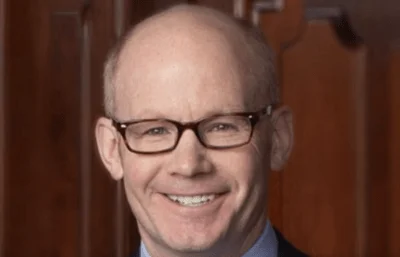The Property Tax Relief Task Force, an 88-member legislative leviathan, missed one deadline for presenting its final recommendations for property tax relief in Illinois, and it’s about to miss another for putting those recommendations into action.
House members serving on the task force have until Friday to file draft legislation with the General Assembly’s Legislative Reference Bureau for the spring session. Senate members have until Jan. 31.
The task force already missed its Dec. 31 deadline for issuing a final report, a deadline imposed when Democratic Gov. J.B. Pritzker signed legislation in August creating the task force. The office of Sen. Napoleon Harris (D-Harvey), one of the co-chairs of the task force, told Prairie State Wire only that the final report was not ready yet.

Wirepoints founder Mark Glennon
The offices of two of the other task force co-chairs – there are eight in all – did not respond to requests for comment.
A draft report by the task force was released to the press late last year, but it was blasted by Republican members who said that none of their suggestions for property tax relief were included. One of the key suggestions, expanding the reach of the sales tax, was criticized as unworkable by Pritzker.
The state’s leading fiscal watchdog, Wirepoints founder Mark Glennon, dismissed nearly everything about the draft report, and even the very existence of the task force.
“The draft contains nothing useful whatsoever about real tax reduction,” Glennon wrote in an email to Prairie State Wire. “Democrats on the committee just repurposed the call for higher taxes on other things, making the ridiculous claim that higher sales taxes can be substituted for property taxes. Chicago already has the highest sales taxes in the country at 10.25 percent. Just shifting school costs to the sales tax would mean Illinois sales taxes would more than triple.”
Glennon added that without looking into reductions in government spending, the task force doomed its own mission right from the start.
“To cut Illinois property taxes by a mere 10 percent would cost $3.1 billion, which could only be accomplished by major spending reform, which is something the task force would never touch,” Glennon wrote. “If we cut Illinois’ residential property tax rates to match Indiana’s and shifted the burden to the state income tax, we’d have to cut property tax rates by 56 percent and nearly double the income tax. Even to match Wisconsin’s property tax rates, which are fourth highest in the nation, Illinois would have to cut its property tax rates by 24 percent, and shifting that to the income tax would mean a $7.6 billion income tax increase – a 40-percent jump.”
Pritzker was relying on prospective legislative action on property tax reform as a way to help sell the voters into approving a move from a flat state income tax to a progressive one, a move that the Illinois Policy Institute recently reported will increase the tax burden for the middle class. That question will be on ballot in November.





 Alerts Sign-up
Alerts Sign-up